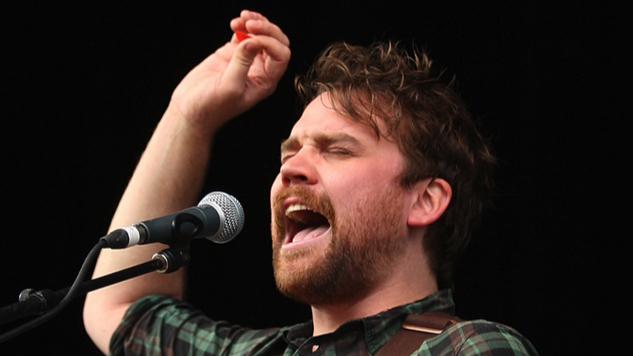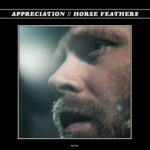When the news came last Wednesday morning that Frightened Rabbit’s Scott Hutchison had been reported missing, my heart sank. And when the news came that his body had been identified, it felt like a kick to the stomach. I don’t think I’m overstating things when I say that the whole of Scotland had been hoping, wishing, and praying for a different, better outcome; Scotland really has lost one of its modern heroes.
Now, I’d never claim to be their biggest fan, but I do thoroughly enjoy their music. I hadn’t realised until now how it had seen me through some tough times in my life over the past 10 years. The deeply poetic lyrics were also charming, funny, irreverent, and utterly devastating all at once; and so painfully real. It was like they’d seen into my own mind and plucked the very thoughts from it.
So why did the news of Scott’s death hit me so hard? It’s not as if I really had a right to be so moved and so upset. I didn’t even know him. Sure, we’d shared the same space a handful of times, and we’d briefly crossed paths in a field last year, but it wasn’t a personal connection. But maybe it’s because it could have been me, even as recent as a few weeks ago. This could have been my story. It could have been the stories of people I do know, and the stories of so many others I will never know. Mental health affects everybody.
This week is Mental Health Awareness Week (running from 14th – 20th May). One in four people will experience a mental health problem in any given year. And while the number of people experiencing problems hasn’t changed much, the statistics for self-harming and suicidal thoughts has increased. And it’s no secret that suicide is the most common cause of death among men between the ages of 20 – 49 years of age. The short version? We aren’t coping.
Depression is a bloody liar. It tells you that you’re not good enough; that you’re not clever enough; that you’re not pretty or handsome enough; that everyone would be better off if you disappeared; that you’ll never get better, and so on and so forth.
So what can we do? There’s always the GP, right? Medication is still the most common treatment, but that’s not the only answer. There are charities and organisations such as Samaritans, Mind, and CALM – but they largely rely on sufferers getting in touch. And I’m positive some of them do. While I’ll concede the need for these organisations is absolutely necessary, I have a problem. Funding cuts to NHS services will obviously equal a reduction in people being able to get the help they need – often resulting in the wrong sort of care, or no treatment whatsoever. I’d certainly recommend using these kinds of organisations, but what about those people who can’t reach out? Who do they turn to? “Help will always be given to those who ask for it,” so says Albus Dumbledore.
But herein lies my issue with how we treat those who need help. The onus seems to be on people who are suffering reaching out and asking for help. Why is that? Why do we place the responsibility on them? If you’ve ever experienced depression, or anxiety, or any other mental health problem, you’ll also likely have heard the words “Snap out of it,” or “Pull yourself together, other people have it worse than you,” or even “What have you got to be depressed about?” and other variations of them. And that can only ever do more harm than good because it gives that notorious liar called Depression more ammunition to use against you.
So here’s what I propose: instead of placing the responsibility on sufferers, reach out to people yourselves. Send them a text asking them how they are; invite them out for a coffee or an afternoon at the beach; leave little notes of love and encouragement in their pockets/lunchboxes/handbags; pick up the phone and talk about anything and everything; tell them your own stories – it might just give them the drive and courage they need to share theirs. I’m sure you can think of something that could make someone’s day. And not just those people who you know or suspect are struggling with mental ill-health; everyone would benefit from a kinder, gentler world that offers love and support instead of judgement and shame. Carry on Scott’s legacy and try to make the world a better place. “While I’m alive, I’ll make tiny changes to earth.”




